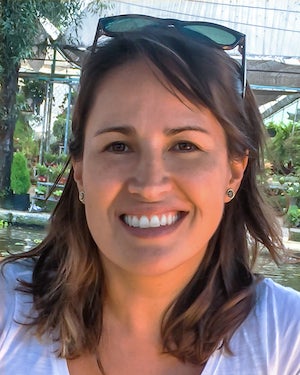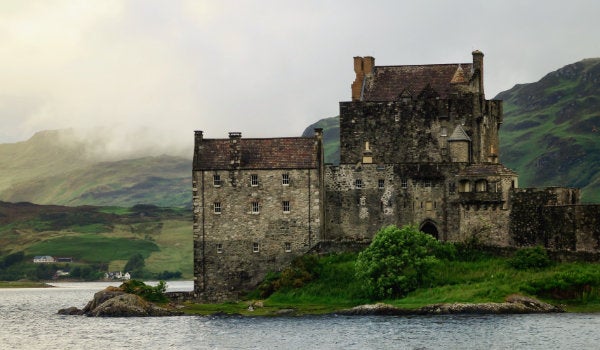Name: Ximena Sevilla
URI Title: Multicultural Postdoctoral Fellow in the Department of History
Email: sevilla@uri.edu
Pronouns: She/her/hers
Three adjectives she uses to describe herself: adventurous, inquisitive, engaging
URI’s new Multicultural Postdoctoral Fellow in the Department of History, Dr. Ximena Sevilla, joins Little Rhody from the University of Kansas, where she obtained her Ph.D. in Latin American and environmental history. “Specifically, my research explores the environmental history of the montaña region, one of the classic transition zones in modern history of Latin America located between the high Andes and lowland Amazonia,” she says. “I focus on Peru’s montaña region, and the entangled relationships of Indigenous peoples and explorers with the region’s unique ecological conditions from the sixteenth to the nineteenth century.”
Sevilla’s choice to move to the Ocean State from the Midwest was made based on a number of factors, as she says, “From my short experience living in Rhode Island and interacting with students, faculty, and staff at URI, I can tell that it has a great community. Even with the limitations of COVID this semester, URI has made me feel welcomed and valued, which is exactly how I felt back in February on my campus visit when I met my colleagues in the history department. On a personal level, I’m from Lima, Peru, where I’ve lived most of my life. Living again in a place that is so close to the ocean is priceless. Even if we are talking about different oceans, the experience of seeing it and smelling it reminds me of home.” An environmental historian of Latin America by discipline — with expertise in history of frontier zones, indigenous history, and oral history in the Andes-Amazon region in the Americas — Sevilla is continuing her research by revising her dissertation for publication as a book manuscript. “As an environment that stretches from Bolivia up to Venezuela, the montaña not only is the most biodiverse region in the world with a diversity of humans to match,” she says, “but it also has a comparative transnational significance, which means that there should be more than one book about the area, and my plan is to keep doing research and writing about it.”
With her second semester as a URI faculty member just around the corner, Sevilla looks forward to teaching HIS 300: History of the Andean & Amazonian Worlds in Spring 2021. As she puts it, students enrolled in the course will “learn about the interaction between these worlds while incorporating analytical perspectives from cultural and social history, environmental studies, urban studies, gender analysis, race theory, and cultural geography.” The course will move largely chronologically, starting with the colonial period and progressing to the present day, though, instead of presenting the material as a chronological narrative, Sevilla notes that the course will focus more on specific texts, objects, or incidents from Andean and Amazonian history.
A previous student of the liberal arts herself, Sevilla knows the value of such an education firsthand, as she states, “A liberal arts education provides students with a multidisciplinary approach and a way of thinking that is going to guide them throughout the rest of their lives. Based on the way that my own academic training in history, indigenous languages, anthropology, and sociology has helped me to shape my teaching and research, I strongly believe that, the more opportunities students have to engage with different academic fields, the more equipped they are going to be in linking what they have learned in the classroom with their experiences outside of it. As I tell my students, they may not remember every single aspect of Latin American history, but they will certainly become informed citizens of the world while being able to go beyond mainstream narratives about Latin America and its diaspora.”
~Written be Chase Hoffman, Writing & Rhetoric and Anthropology Double Major, URI Class of December 2020


